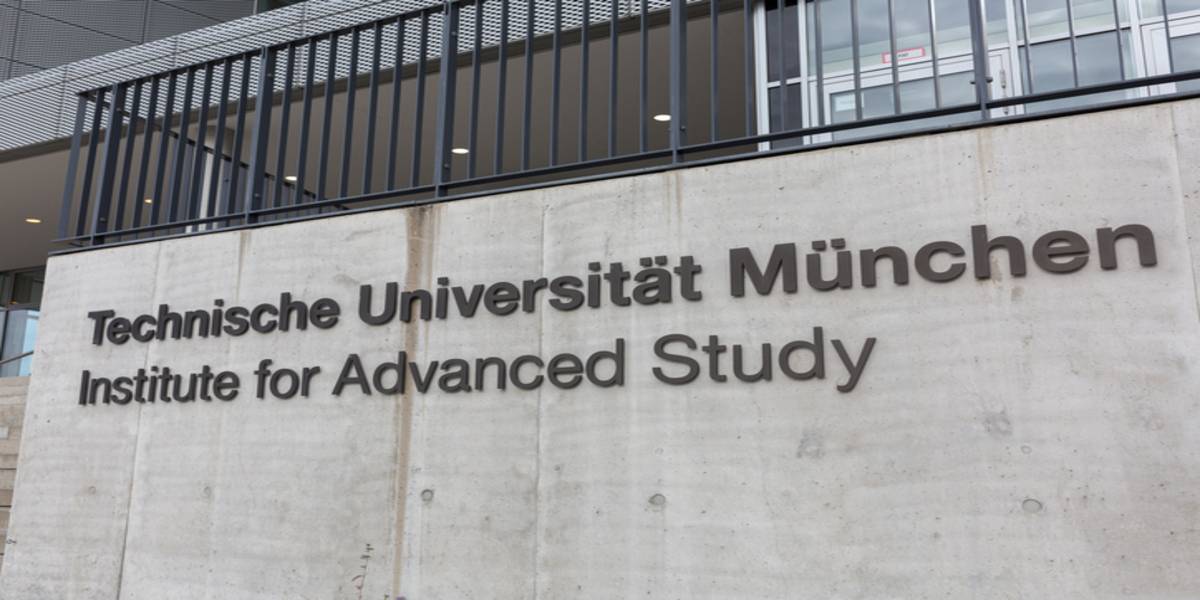Must-Know Changes for Students in Germany in 2025
For Indian students planning to study in Germany, the years 2024 and 2025 bring some important changes. These updates will affect various aspects of student life who want to study in Germany, from financial requirements to work opportunities. Here’s a simple guide to the must-know changes for students in Germany.
Germany has been known to have a quality education, rich cultural diversity and is friendly to international students. Top universities in Germany, zero tuition fees in German public universities are some of the common reasons why Indian students choose Germany as their top study abroad destination.
Students planning to study in Germany and have already applied to German universities, should be aware of new regulations for Students in Germany in 2025. The key changes to study in Germany include an increase in the blocked account requirement, adjustments to minimum wage laws, new tuition fees at certain universities, and expanded work rights for students.
Predict your IELTS, TOEFL, and PTE in just 4 steps!
These updates will affect various aspects of student life, including how much money you need, your ability to work, and even tuition fees at some universities. Understanding these changes in studying in Germany is essential for both new and current students. Here’s a look at the key changes that will impact students in Germany over the next two years.
Key Changes to Study in Germany in 2025
As the 2024/2025 academic year approaches, international students planning to study in Germany should be aware of several important changes that will affect higher education and student life in the country.
1. Increase in Blocked Account Requirement To €11,904:
One of the major changes for international students planning to study in Germany is the increase in the blocked account requirement.
From September 1, 2024, the students are required to prove their financial viability by showing €11,904 per year (which is approximately € 992 per month) in a blocked account. This is higher than the previous requirement of €11,208 in order to get a loan.
The concept of a blocked account is still an important element of the application for the German student visa, ensuring that students can cover their living expenses while studying.
2. Increase in Minimum Wage To €12.82 Per Hour
As of January 1, 2025, the legal minimum wage in Germany will rise to €12.82 per hour, up from €12.41. This increase means that full-time workers can expect a gross monthly salary of approximately €2,222.
For students working part-time jobs in Germany, this change will surely boost their earning potential significantly and allow them to better support their living costs while pursuing their education.
3. Mini-Job Salary Threshold Increase
A mini job in Germany is a part-time position with a low wage and flexible hours that allows people to earn extra money. It is a type of employment where the person's income must not exceed a certain limit. Earlier, in 2024, In 2024, the Mini-Job Salary Threshold was 538 euros per month
The mini-job salary threshold will also see an increase from €538 to €556 per month starting January 1, 2025. Mini-jobs are popular among students as they allow them to earn money without incurring full social security contributions.
With the new minimum wage, students can work around 43.3 hours per month under this scheme while maintaining their student status in Germany.
4. Tuition Fees for Non-EU Students at TU Munich
The Technical University of Munich (TUM) will implement tuition fees for non-EU international students, starting from the winter semester of 2024/25. These fees at TU Munich for Non-EU students will range from €2,000 to €6,000, depending on the program level (bachelor's or master's). This policy is part of a broader trend among German universities but does not affect students who enrolled prior to this change.
5. Increased Funding for Erasmus+ Program
To increase international students' mobility, German universities will receive approximately €220 million over the next two years from the Erasmus+ Program. Of this amount, €186 million will support student and staff exchanges abroad. This funding represents a significant increase compared to previous years and is expected to benefit around 58,000 participants.
6. Expanded Employment Rights for International Students
Starting March 1, 2024, international students are enjoying greater employment freedoms under new regulations:
- Students can work up to 140 full days or 280 half days per year, or up to 20 hours per week during their studies.
- Prospective students on a student applicant visa can work part-time to 20 hours per week while applying for admission.
- New provisions allow third-country nationals to stay in Germany for up to nine months to find vocational training opportunities.
- A person who is learning a trade from a skilled employer, having agreed to work for a fixed period at low wages can now work part-time up to 20 hours per week alongside their training.
These changes provide more flexibility and opportunities for financial support through part-time employment.
7. BAföG Reforms: Increased Support Rates and Allowances
The BAföG (Federal Training Assistance Act) system will undergo reforms starting July 24, 2024:
- Maximum support rates will increase by 5%, with allowances for housing rising to €380.
- The income threshold for parents and siblings will also be adjusted upward.
- New provisions will allow students changing fields of study to receive funding longer.
BAföG Requirements 2025: Rates, and Allowances
| Category |
New Rate/Allowance |
Details |
|---|---|---|
| Requirement Rates |
Up to €855 for students under 25 |
Increased by 5%. |
| Up to €992 for students aged 25-30 |
||
| Up to €1,088 for students over 30 |
||
| Housing Allowance |
€380 |
For students living away from home. |
| Mini-Job Limit |
€556 |
Increase effective January 2025. |
| Parents’ Income Allowance |
€2,540 for both parents together |
Increased from previous amounts. |
| €1,690 for each parent if separated |
||
| Sibling Income Allowance |
€770 |
Increased per sibling; underage sibling allowance will be waived. |
| Deduction Rates for Social Security Contributions |
22.3% for employed parents |
Adjusted rates for BAföG calculations. |
| 38.8% for self-employed parents |
||
| 16.5% for non-employed parents |
||
| Flexible Semester |
One semester longer |
Students can receive funding for an additional semester without needing a specific reason. |
| Funding for Changing Fields of Study |
One semester longer |
Funding available until the beginning of the fifth semester for students changing their field of study. |
| Study Start-Up Aid |
One-off grant of €1,000 |
Available to students from low-income households to help with initial study costs. |
These key changes to Study in Germany in 2025 aim to make education more accessible and financially manageable for students from low-income backgrounds.
8. New Nationwide Deutschland Ticket for Students
A new nationwide student ticket has been launched in summer semester 2024. The New Nationwide Deutschland Ticket for Students costs €29.40 per month, which is 40% cheaper than the regular price.
This Deutschland ticket allows students unlimited access to local transport across Germany (excluding long-distance trains) and is calculated into university semester fees. This initiative makes it easier for students to commute and explore various regions within Germany without thinking of additional travel costs.
9. Five German Universities in Top 100 QS Rankings
In the QS World University Rankings for 2025, five German universities have made it into the top 100 globally:
| University |
QS Ranking |
|---|---|
| Technical University of Munich (TU Munich) |
28 |
| 59 |
|
| 84 |
|
| 97 |
|
| 99 |
A total of 48 German universities are ranked under OS Ranking 2025, out of which 28 universities are under top 500 universities world wide.
The changes to study in Germany coming in 2025 present both challenges and opportunities for Indian students looking to study in Germany. By staying informed about financial requirements and new regulations, students can better prepare themselves for their educational journey in this vibrant country.
Changes for Students in Germany FAQs
Q. What will the salary be in Germany in 2025?
A. In 2025, the minimum wage in Germany is set to be €12.82 per hour. This means that full-time workers (working a standard 40-hour week) will earn a gross monthly salary of approximately €2,222.
Q. When should I apply for summer intake in Germany in 2025?
A. For the summer intake in Germany, it is advisable to apply at least six months before the semester begins. Usually, the summer semester starts in April, so applications should be submitted by October of the previous year.
Q. Which subject is best for the future in Germany?
A. The best subjects for future career prospects in Germany often include Engineering, Business Management, Humanities & Art, Computer Science & IT, Social Sciences, Law and Natural Sciences.
Q. Which intake is best for Germany?
A. The winter intake in Germany is the major one. All top universities of Germany are available and accepting applications during this intake.
Q: Is BSBI degree valid in Germany?
Q: What is the cost of a student visa in Germany?
International students going to pursue higher education in Germany are required to apply for a German study visa. The cost of study visa for Germany is EUR 75 per applicant. Below we have provided a check list for German student visa:
- Valid passport
- Application form
- Declaration for additional contact and legal representation information
- Copy of passport
- Proof of admittance to the study course
- Curriculum Vitae
- Proof of Financial Means
Q: How can I get admission to IU Berlin?
International students who wish to study at IU Berlin can apply for admission online through official wesbite. Students must follow the below points to apply easily for IU International University of Applied Sciences admissions:
- Visit the website and check the list of IU Germany courses
- Choose your programme
- Apply online using official website
- Submit your contract
- Start your studies
Q: What are the requirements for Delft University of Technology?
TU Delft has its own criteria that vary as per the programs for international students. We have mentioned below the Delft University of Technology requirements for international students:
For Undergraduate Admission
· Must have a secondary school Diploma equivalent to the Dutch pre-university
· Required examination subjects as per the program
· English Language Proficiency test score
For Graduate Admission
· A bachelor’s degree
· Must achieve a cumulative GPA of at least 75% in bachelor’s degree
· English Language Proficiency test score
· Additional test score of GMAT/GRE (if applicable)
Q: Why study in Germany?
Germany is the third-most sought-after study abroad destination among international students. It is the top choice for students to study in Europe. The country boats the highest standard of living because of the biggest job market in Europe. Take a look some more benefits of studying in Germany below:
· An affordable cost of living
· Access to international companies
· World-class universities to study
· A high-quality educational system
· After graduation, you will be eligible to apply for 18 months post-study resident permit
Also read about the Top Reasons to Study in Germany
Q: Is Hof University Germany a good university?
Hof University is voted the most popular university in Germany for 2024. It continues to receive the highest marks for teaching. These rankings are as per the ranking published by the renowned portal Studycheck.de. More than 40 bachelor’s and master’s programs in Computer Science, Business, Engineering as well as Interdisciplinary and Innovative Science are offered by the university. Also, the teaching at this university is based on innovative methods to convey application-oriented knowledge.
Q: Is KIT Germany free for international students?
As per Article 3 LHGebG (Baden-Württemberg Act on State University Fees), international students from third-countries / Non-EU countries attending bachelor’s, teacher’s, and consecutive master’s programs and free movers will have to pay the tuition fee of amount EUR 1,500 per semester. Students can check the cost of living in Germany for International Students from here.
Q: What is the ranking of Heidelberg University Germany?
According to the QS World Rankings 2024, Heidelberg University Germany has a ranking of #87 in the world. Some of the world rankings at the university are given as follows:
| Year | QS World Rankings |
|---|---|
| 2020 | 66 |
| 2021 | NA |
| 2022 | 63 |
| 2023 | 65 |
| 2024 | 87 |

Raushan Kumar is a skilled writer and a Study Abroad Expert in the Editorial Team at Shiksha. He oversees various aspects of studying abroad, including educational opportunities, entrance exams, colleges, latest new... Read Full Bio








BSBI does not hold degree-awarding powers in Germany and its programmes are validated by private Italian distance learning institution UniNettuno International Telematic University. BSBI has also partnered with Concordia University Chicago to deliver programmes at its Berlin campus.